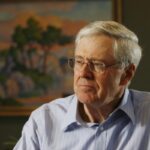- Home
- Billionaires
- Investing Newsletters
- 193CC 1000
- Article Layout 2
- Article Layout 3
- Article Layout 4
- Article Layout 5
- Article Layout 6
- Article Layout 7
- Article Layout 8
- Article Layout 9
- Article Layout 10
- Article Layout 11
- Article Layout 12
- Article Layout 13
- Article Layout 14
- Article Sidebar
- Post Format
- pages
- Archive Layouts
- Post Gallery
- Post Video Background
- Post Review
- Sponsored Post
- Leadership
- Business
- Money
- Small Business
- Innovation
- Shop
Recent Posts
Mark Zuckerberg: The Architect of the Social Media Revolution

Mark Zuckerberg, the co-founder and CEO of Facebook (now Meta Platforms Inc.), is one of the most influential figures in the digital era. His name has become synonymous with social media and the rapid evolution of how people communicate and interact in the 21st century. Known for his technical brilliance, strategic foresight, and sometimes controversial decisions, Zuckerberg’s journey from a college dorm room to leading one of the world’s most powerful technology companies is both fascinating and transformative.
Born on May 14, 1984, in White Plains, New York, Mark Elliot Zuckerberg grew up in Dobbs Ferry, a small suburban town. He was raised in a well-educated household; his father, Edward Zuckerberg, was a dentist, and his mother, Karen, was a psychiatrist. From a young age, Mark showed an affinity for computers and programming. He created his first software programs in middle school, including a messaging tool his father used in his dental office. His passion for coding and problem-solving set the foundation for his future success.
During his high school years at Phillips Exeter Academy, a prestigious boarding school in New Hampshire, Zuckerberg continued to hone his programming skills. He built music-playing software called Synapse, which attracted interest from major companies like Microsoft and AOL. Rather than selling the program or working for a tech firm, he chose to pursue higher education and enrolled at Harvard University in 2002, where he studied computer science and psychology.
It was at Harvard that Zuckerberg’s most groundbreaking project began to take shape. In February 2004, he launched “TheFacebook” from his dorm room with the help of a few friends, including Eduardo Saverin, Andrew McCollum, Dustin Moskovitz, and Chris Hughes. Initially intended as a social networking site for Harvard students, the platform quickly expanded to other Ivy League schools and eventually universities across the country. The simple yet powerful idea of connecting people online through profiles and networks resonated widely.
Zuckerberg dropped out of Harvard in his sophomore year to focus full-time on growing Facebook. He moved to Palo Alto, California, where he established the company’s first official office. Under his leadership, Facebook rapidly grew its user base, introducing new features like the News Feed, photo sharing, and third-party app integrations. By 2006, Facebook was open to anyone over the age of 13 with a valid email address, marking a significant turning point in its transformation into a global social media giant.
As Facebook expanded, Zuckerberg became known for his intense focus and willingness to take calculated risks. He famously turned down acquisition offers from major companies, including Yahoo, because he believed in Facebook’s long-term potential. His vision extended beyond mere connectivity—he sought to make Facebook a digital platform that would change how people lived, worked, and consumed information. Despite controversies and growing pains, Zuckerberg maintained control over the company, holding a majority of voting shares.
In 2012, Facebook went public in one of the largest tech IPOs in history. The move solidified Zuckerberg’s status as one of the youngest billionaires in the world. With the new influx of capital, he began making strategic acquisitions to expand Facebook’s influence. In 2012, Facebook acquired Instagram, and in 2014, it purchased WhatsApp and Oculus VR. These acquisitions were not only about expanding user bases but also about positioning Facebook as a leader in mobile communication, visual media, and virtual reality.
Zuckerberg’s ambitions evolved over time. In 2021, he rebranded Facebook Inc. as Meta Platforms Inc., signaling a shift toward building the metaverse—a collective virtual shared space where users could interact in immersive digital environments. The move was met with mixed reactions, with critics questioning the feasibility and ethics of such an expansive digital ecosystem. Nonetheless, it marked Zuckerberg’s commitment to innovation and his belief in a future shaped by augmented and virtual reality.
Throughout his career, Zuckerberg has faced significant criticism and challenges. Facebook has been at the center of debates over data privacy, misinformation, mental health impacts, and political influence. The Cambridge Analytica scandal in 2018, where user data was harvested without consent for political advertising, sparked global backlash and increased scrutiny from regulators. Zuckerberg testified before U.S. Congress and faced questioning over Facebook’s data policies, content moderation, and business practices.
Despite these challenges, Zuckerberg has remained a central figure in the conversation around tech regulation and digital ethics. He has advocated for clearer internet regulation and improved transparency. At the same time, he continues to push Meta’s broader mission to build tools that empower communities and give individuals a voice. His leadership style—calm, data-driven, and occasionally polarizing—has enabled him to maintain a steady course even through turbulent times.
Outside of his corporate responsibilities, Zuckerberg is also known for his philanthropic efforts. In 2015, he and his wife Priscilla Chan, a pediatrician, pledged to donate 99% of their Facebook shares to charitable causes through the Chan Zuckerberg Initiative (CZI). The organization focuses on areas such as personalized learning, scientific research, and justice reform. Their goal is to advance human potential and promote equality on a global scale, reflecting Zuckerberg’s broader aspirations beyond the tech industry.
Zuckerberg’s personal life, while relatively private, occasionally intersects with his public persona. He and Priscilla Chan met while at Harvard and married in 2012. They have two daughters and strive to balance their public responsibilities with family life. Known for his minimalist lifestyle, Zuckerberg often appears in plain t-shirts and jeans, reflecting his focus on function over form. He is also fluent in Mandarin, a skill he has showcased during visits to China.
Mark Zuckerberg’s legacy is still in the making. He has redefined how billions of people connect and communicate, while also grappling with the responsibilities that come with that power. From a college student with a bold idea to the head of one of the most influential tech companies in history, his journey illustrates the possibilities and perils of digital innovation. Whether seen as a visionary, a disruptor, or a controversial leader, Zuckerberg has undeniably left an indelible mark on the modern world.
- AI integration
- American innovators
- augmented reality
- Cambridge Analytica
- Chan Zuckerberg Initiative
- coding prodigy
- Content Moderation
- CZI
- data ethics
- digital advertising
- digital communication
- digital culture
- Digital Innovation
- digital philanthropy
- digital platforms
- global connectivity
- Harvard dropout
- information age
- internet regulation
- Mark Zuckerberg
- Meta Platforms
- mobile apps
- News Feed
- Oculus VR
- online communities
- online identity
- online influence
- online privacy
- Priscilla Chan
- Silicon Valley
- Social Media
- Social Networking
- Synapse software
- tech billionaire
- tech disruption
- tech IPO
- tech moguls
- technology entrepreneur
- the metaverse
- User Experience
- virtual presence
- virtual reality
- VR future
- young billionaire
- youth entrepreneurship
- Zuckerberg biography
Recent Posts
Categories
- 193 Countries Consortium Partner1
- 193cc Digital Assets2
- 5G1
- Aerospace & Defense48
- AI37
- Arts3
- Banking & Insurance11
- Big Data3
- Billionaires1,506
- Boats & Planes1
- Business332
- Careers13
- Cars & Bikes79
- CEO Network1
- CFO Network17
- CHRO Network1
- CIO Network1
- Cloud10
- CMO Network18
- Commercial Real Estate7
- Consultant1
- Consumer Tech194
- CxO1
- Cybersecurity73
- Dining1
- Diversity, Equity & Inclusion4
- Education7
- Energy8
- Enterprise Tech29
- Events11
- Fintech1
- Food & Drink2
- Franchises1
- Freelance1
- Future Of Work2
- Games149
- GIG1
- Healthcare79
- Hollywood & Entertainment203
- Houses1
- India’s 1000 Richest1
- Innovation46
- Investing2
- Investing Newsletters4
- Leadership65
- Lifestyle11
- Manufacturing1
- Markets20
- Media327
- Mobile phone1
- Money13
- Personal Finance2
- Policy569
- Real Estate1
- Research6
- Retail1
- Retirement1
- Small Business1
- SportsMoney42
- Style & Beauty1
- Success Income1
- Taxes2
- Travel10
- Uncategorized15
- Vices1
- Watches & Jewelry2
- world's billionaires1,475
- Worlds Richest Self-Made Women2
Related Articles
Francis Choi: The Toy Tycoon Behind a Billion-Dollar Empire
Francis Choi Chee-ming, often referred to as Hong Kong’s “King of Toys,”...
By 193cc World's BillionairesJune 6, 2025Francine von Finck and the Legacy of a Discreet Fortune
Francine von Finck, a name that commands respect in elite business circles,...
By 193cc World's BillionairesJune 6, 2025The Life and Legacy of Stefano Pessina
Stefano Pessina, one of the most influential figures in the global pharmaceutical...
By 193cc World's BillionairesJune 6, 2025John Morris: A Life of Vision, Growth, and Legacy
John Morris, the founder of Bass Pro Shops, is an iconic figure...
By 193cc World's BillionairesJune 6, 2025















Leave a comment